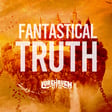Become a Creator today!Start creating today - Share your story with the world!
Start for free
00:00:00
00:00:01

211. Why Do Failed Heroes Feel So Frustrating?
King David was a man after God’s own heart. But he failed. King Arthur was the legendary ruler of Britain. But he also failed. And in newer fiction, Paul Atreides was the prophesied Lisan al Gaib. And, once again, he failed. Why is it so frustrating to watch all these real and fictional heroes keep failing?
Episode sponsors
- Enclave Publishing: Chromatic by Ashley Bustamante
- Realm Makers 2024 writers’ conference
- Story Embers summit, May 23–25, 2024
Mission update
- Lorehaven reviews: The Book of the Dun Cow and Chromatic (May 10)
- Subscribe free to get updates and join the Lorehaven Guild
Concession stand
- Let’s skip to the end: human heroes fail, but Jesus never will. Roll theme.
- Ah, but seriously, that’s the clear conclusion. But until then, we groan.
- This episode is more about that frustration about failed human heroes.
- We’ve selected three: historical, mythical, and fictional. You’ll have more.
- Finally, there will be spoilers about King David, King Arthur, and Dune.
1. King David’s historic sins tarnished a Golden Age
- Stephen recently re-read the David narratives in 1/2 Samuel/Chronicles.
- This reading plan is chronological, with Psalms, which brings out a lot.
- For instance, there’s a lot of “journalism” being done to defend David.
- But also in-house accountability journalism to hold him to account.
- “Jehoshaphat the son of Ahilud was recorder” for both David and his son Solomon’s kingship (2 Sam. 8:16; cf. 2 Sam. 20:24 and 1 Kings 4:3).
- If you use written records to exonerate kings, they must tell everything.
- That includes David’s sins against Bathsheba and Uriah (2 Sam 11:3).
- Later, David apparently mistrusts his God and instead trusts in his army, so he sinfully orders a national census (2 Sam. 24, cf. 1 Chron. 21).
- Reading this at once, it’s almost painful how much things fall apart.
- David’s power-abuse gets magnified by his Amnon’s assault (2 Sam. 13).
- David’s other son, Absalom, is enraged, abuses power, turns rebel.
- And ultimately David dies fairly faithful, yet unable to build God’s house.
- His son Solomon also gets a golden age, plus wisdom, but also a harem.
- After that, the kingdom falls apart, and nothing in Israel is ever the same.
2. King Arthur’s mythical reign ultimately ended
- Stephen is still catching up to the various King Arthur legends.
- Several versions exist, such as original(?) 1400s Sir Thomas Malory tales.
- Newer versions include Terence Hanbury White’s The Sword in the Stone
- Stephen R. Lawhead moved back the time period in his Pendragon Cycle.
- Alas, our Stephen had to get spoilers to answer Arthur’s mythical fate.
- There’s the whole infamous tale of Lancelot and Guinevere vs. Arthur.
- And also Arthur’s son, Mordred, apparently fighting him in battle.
- Arthur dies—or else he heals up in Avalon and will return to England.
- Either way, Arthur’s reign did not work out. No descendants. No throne.
- Lawhead’s Pendragon Cycle echoes longing for a “kingdom of summer.”
- Yet even in book 1 you get the idea
